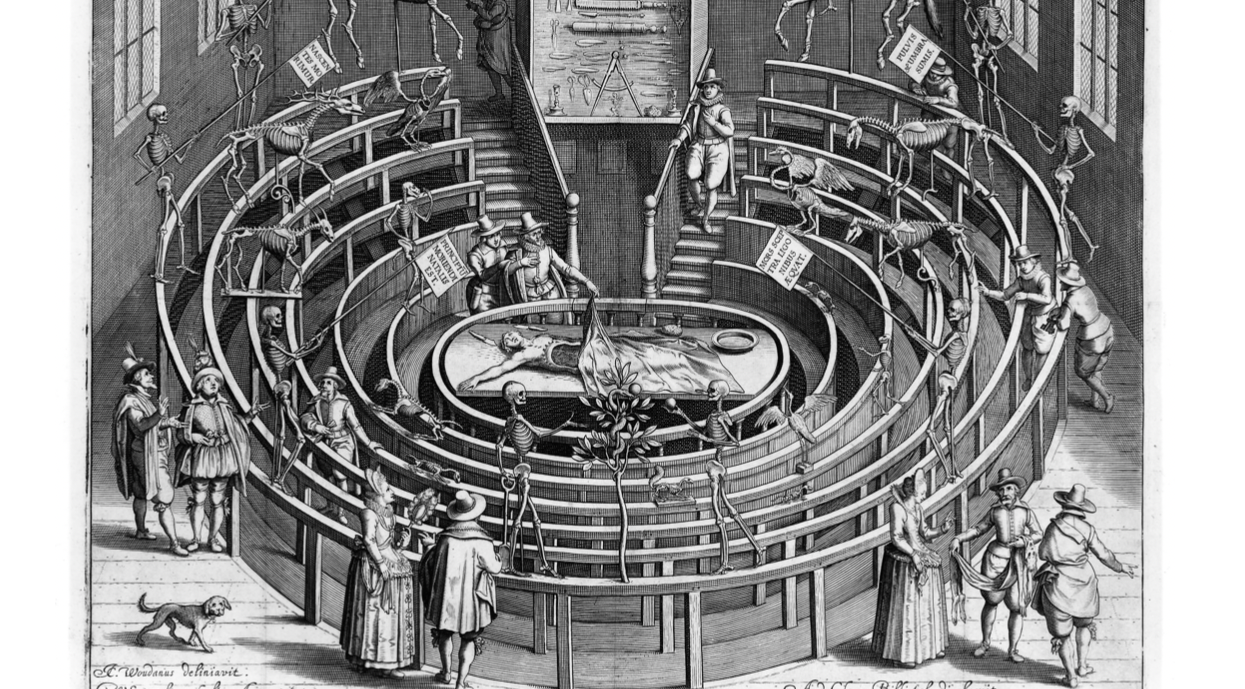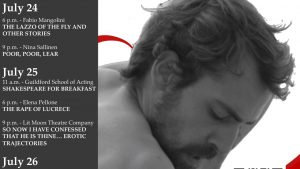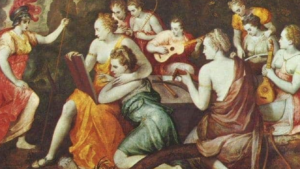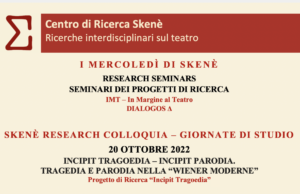What the Doctor Saw: Gendering Ophelia in the (Anatomy) Theatre
15 November 2023
Polo Santa Marta, SMT.08 – 11.50 and on Zoom
Abstract
This talk offers fresh insights into the gendered perceptions and representations of Ophelia in early modern performance history by way of an overlooked audience position: that of the early modern ‘doctor’ or anatomist. Thomas Platter’s diary description of a performance of Julius Caesar at the Globe in 1599 is a common point of reference in Shakespeare studies. Platter is usually described as Swiss ‘tourist’, but the fact that he was travelling around Europe as a medical student together with his more famous physician brother Felix Platter is less often noted. During their travels, the Platters attended a different kind of performance, one which was more relevant to their profession: anatomical dissection at various European medical schools. In this talk I will argue that approaching theatrical performance in early modern London through the eyes of contemporary medical culture – exemplified by the gaze of Thomas Platter – offers a productive interpretative lens, especially on the dead bodies on the stage, including those representing women. We know that Platter saw Julius Caesar, not Hamlet, although early performances of the two plays may have roughly coincided, but other anatomists and barber surgeons are highly likely to have attended performances of Hamlet. What did they see (and hear), when they looked at a stage corpse representing a woman? In what ways was their gaze influenced by their experience from the anatomical theatre, where female corpses were a special occasion and subjected to a particular kind of gendered discourse? This talk will seek to answer such questions, drawing jointly on early modern theatre history and on sources from early modern European medical history.
Dr Anne Sophie Refskou has taught Shakespeare studies, performance and comparative literature at the University of Surrey, UK and the University of Aarhus, Denmark. Her research focuses on early modern English literature and theatre, especially Shakespeare and his contemporaries and the classical/medieval literary heritage in the early modern period. Research topics include compassion, history of emotions, affect theory, theatre history, reception history and intertextuality. She is currently working on a monograph provisionally titled Shakespeare’s Compassion: Emotion, Intertextuality and the Classics on the Early Modern Stage. Other publications include: “Humanist Shakespeare: Xenophobia and Compassion in Sir Thomas More” in The Shakespearean International Yearbook 19 ed./Ton Hoenselaars and Stephen O’Neill and “Word Games, Affect and Play in Hamlet and Romeo & Juliet” in Shakespeare/Play ed./Emma Whipday (forthcoming).
For information write to: skene@ateneo.univr.it




